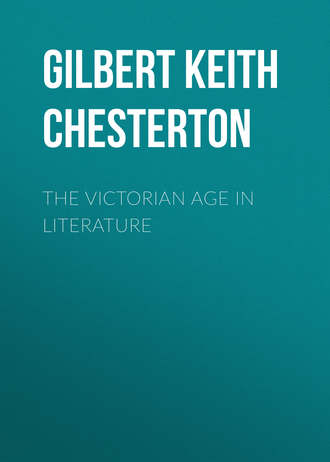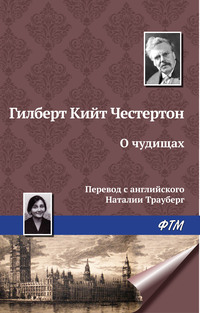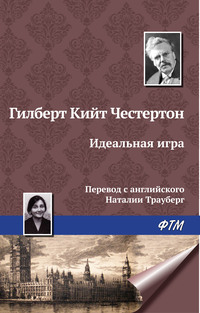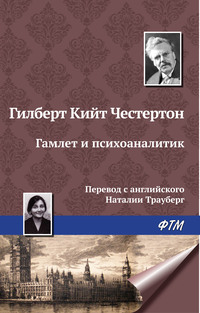 полная версия
полная версияThe Victorian Age in Literature
For Stevenson had at his elbow a friend, an invalid like himself, a man of courage and stoicism like himself; but a man in whom everything that Stevenson made delicate and rational became unbalanced and blind. The difference is, moreover, that Stevenson was quite right in claiming that he could treat his limitation as an accident; that his medicines "did not colour his life." His life was really coloured out of a shilling paint-box, like his toy-theatre: such high spirits as he had are the key to him: his sufferings are not the key to him. But Henley's sufferings are the key to Henley; much must be excused him, and there is much to be excused. The result was that while there was always a certain dainty equity about Stevenson's judgments, even when he was wrong, Henley seemed to think that on the right side the wronger you were the better. There was much that was feminine in him; and he is most understandable when surprised in those little solitary poems which speak of emotions mellowed, of sunset and a quiet end. Henley hurled himself into the new fashion of praising Colonial adventure at the expense both of the Christian and the republican traditions; but the sentiment did not spread widely until the note was struck outside England in one of the conquered countries; and a writer of Anglo-Indian short stories showed the stamp of the thing called genius; that indefinable, dangerous and often temporary thing.
For it is really impossible to criticise Rudyard Kipling as part of Victorian literature, because he is the end of such literature. He has many other powerful elements; an Indian element, which makes him exquisitely sympathetic with the Indian; a vague Jingo influence which makes him sympathetic with the man that crushes the Indian; a vague journalistic sympathy with the men that misrepresent everything that has happened to the Indian; but of the Victorian virtues, nothing.
All that was right or wrong in Kipling was expressed in the final convulsion that he almost in person managed to achieve. The nearest that any honest man can come to the thing called "impartiality" is to confess that he is partial. I therefore confess that I think this last turn of the Victorian Age was an unfortunate turn; much on the other side can be said, and I hope will be said. But about the facts there can be no question. The Imperialism of Kipling was equally remote from the Victorian caution and the Victorian idealism: and our subject does quite seriously end here. The world was full of the trampling of totally new forces, gold was sighted from far in a sort of cynical romanticism: the guns opened across Africa; and the great queen died.
Of what will now be the future of so separate and almost secretive an adventure of the English, the present writer will not permit himself, even for an instant, to prophesy. The Victorian Age made one or two mistakes, but they were mistakes that were really useful; that is, mistakes that were really mistaken. They thought that commerce outside a country must extend peace: it has certainly often extended war. They thought that commerce inside a country must certainly promote prosperity; it has largely promoted poverty. But for them these were experiments; for us they ought to be lessons. If we continue the capitalist use of the populace – if we continue the capitalist use of external arms, it will lie heavy on the living. The dishonour will not be on the dead.
BIBLIOGRAPHICAL NOTE
After having surveyed the immense field presented in such a volume as Mr. George Mair's Modern English Literature in this series, or, more fully, in the Cambridge History of Modern Literature, the later volume of Chambers' English Literature, Mr. Gosse's History of Modern English Literature, or Henry Morley's English Literature in the Reign of Victoria, the wise reader will choose some portion for closer study, and will go straight to the originals before he has any further traffic with critics or commentators, however able.
He will then need the aid of fuller biographies. Some Victorian Lives are already classic, or nearly so, among them Sir G. Trevelyan's Macaulay, Forster's Dickens, Mrs. Gaskell's Charlotte Brontë, Froude's Carlyle, and Sir E. T. Cook's Ruskin. With these may be ranged the great Dictionary of National Biography. The "English Men of Letters" Series includes H. D. Traill's Coleridge, Ainger's Lamb, Trollope's Thackeray, Leslie Stephen's George Eliot, Herbert Paul's Matthew Arnold, Sir A. Lyall's Tennyson, G. K. Chesterton's Robert Browning, and A. C. Benson's Fitzgerald. At least two autobiographies must be named, those of Herbert Spencer and John Stuart Mill, and, as antidote to Newman's Apologia, the gay self-revelations of Borrow, and Jefferies' Story of My Heart. Other considerable volumes are W. J. Cross's George Eliot, Lionel Johnson's Art of Thomas Hardy, Mr. W. M. Rossetti's Dante G. Rossetti, Colvin's R. L. Stevenson, J. W. Mackail's William Morris, Holman Hunt's Pre-Raphaelite Brotherhood, Sir Leslie Stephen's The Utilitarians, Buxton Forman's Our Living Poets, Edward Thomas's Swinburne, Monypenny's Disraeli, Dawson's Victorian Novelists, and Stedman's Victorian Poets. The "Everyman" Short Biographical Dictionary of English Literature is useful for dates.
The latter half of the second volume of Mr. F. A. Mumby's Letters of Literary Men is devoted to the Victorian Age. There are fuller collections of the Letters of Leigh Hunt, Thackeray, Dickens, the Brownings, Fitzgerald, Charles Kingsley, Matthew Arnold, and more recently the Letters of George Meredith, edited by his son.
Among the important critical writers of the period, Matthew Arnold (Essays in Criticism, Study of Celtic Literature, etc.) stands easily first. Others are John, now Lord, Morley (Studies in Literature, etc.), Augustine Birrell (Obiter Dicta, Essays), W. E. Henley (Views and Reviews), J. Addington Symonds (Essays), J. Churton Collins, Richard Garnett, Stopford A. Brooke, George E. B. Saintsbury (History of Criticism), R. H. Hutton (Contemporary Thought), J. M. Robertson (Modern Humanists, Buckle, etc.), Frederic Harrison (The Choice of Books, etc.), Andrew Lang, Walter Bagehot, Edmund Gosse, Prof. Dowden, Sir Walter Raleigh, and Sir A. T. Quiller Couch.











